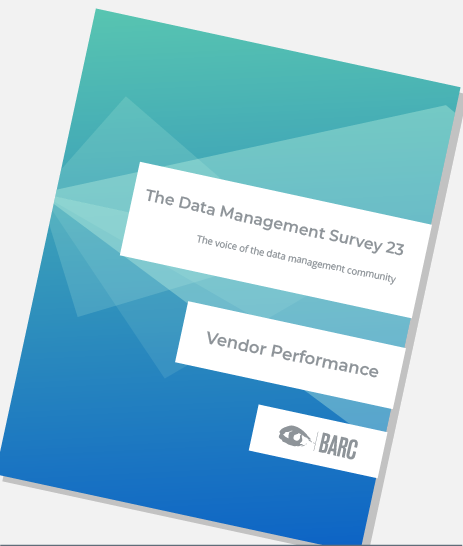Qlik Data Integration
Qlik, originally founded in 1993 in Lund, Sweden, moved its headquarters to Radnor, Pennsylvania in the United States in 2005 after raising funds from several venture capital firms. It was acquired by the current owner – private equity company Thoma Bravo – in 2016. Qlik offers a compelling portfolio of end-to-end, platform-based solutions for analytics and data management. In the area of data management, the vendor offers products for data ingestion, transformation and cataloging.
Qlik has greatly expanded its data management offerings through acquisition, particularly in recent years. Major acquisitions include Podium Data for data quality and cataloging in 2018; Attunity for data integration in 2019; Blendr.io for IPaaS in 2020; NodeGraph for graph-based data cataloging, lineage and governance in 2021; and Big Squid for machine-learning based data preparation in 2021. Most recently, in 2023, Qlik acquired Talend to enhance its data transformation, data quality and data governance capabilities.
Qlik Data Integration encompasses expert data management tools for connecting, preparing and delivering data for analytics. The current suite of tools includes Replicate, Enterprise Manager, Compose, Gold Client, Catalog, Application Automation and Cloud Data Integration. The data management tools are tightly integrated with Qlik analytics tools, but can also be used standalone. They cover usage scenarios from replication and streaming to data warehouse automation, data transformation and cataloging. While Qlik is transitioning to a SaaS model, products such as Compose for data warehouse automation are also available on-premises or as a hybrid deployment.
Qlik offers real-time streaming via change data capture (CDC). It supports sources such as Db2 z/OS, SAP and Oracle, and popular targets such as Amazon Redshift, Snowflake, Databricks, Google BigQuery and Microsoft Azure Synapse. Qlik Compose for Data Warehouses allows rapid graphical development of data warehouse models and marts, while Compose for Data Lakes enables customers to transform and prepare data for analytics. The catalog provides a business-user-friendly interface to search and analyze connected data assets. All pipelines can be scheduled and monitored by Qlik Enterprise Manager, which allows users to configure, execute and monitor pipelines across the enterprise. While this survey focuses on heritage Qlik offerings, the acquisition of Talend in May 2023 strengthens its portfolio in areas such as data transformation and data governance. The combined toolset supports Qlik’s vision of creating an end-to-end analytics data pipeline and delivering real-time, up-to-date information that can trigger immediate actions. Qlik’s recent acquisition of Talend will greatly enhance its data management capabilities, further broadening the platform’s use cases.

User & Use Cases
Nearly half of the customers surveyed use Qlik Data Integration for data integration (46 percent) and data warehousing and BI (42 percent). This should be expected as these are Qlik’s longest running data integration tools. Significant proportions of customers use functionality made possible by Qlik’s acquisitions. Popular uses include data discovery (25 percent), self-service analytics (25 percent), data intelligence (21 percent) and cloud integration (21 percent). Surprisingly, some long-standing tools such as data warehouse automation (17 percent) and data preparation by business users (17 percent) are being used as less as new tools like the data lakehouse (13 percent).
Qlik is used in companies of all sizes. The tool scales from small to large scenarios as we can see in the averages: some large-scale implementations bring up the mean to 154 users per company, but the median is 15 users per company, meaning at least half of customers have 15 or few employees using the tool. It is noticeable that Qlik respondents reported lower numbers of users and developers than most of its rivals. This indicates good potential for Qlik to scale up within customer organizations given that 87 percent of them are midsize and large companies.
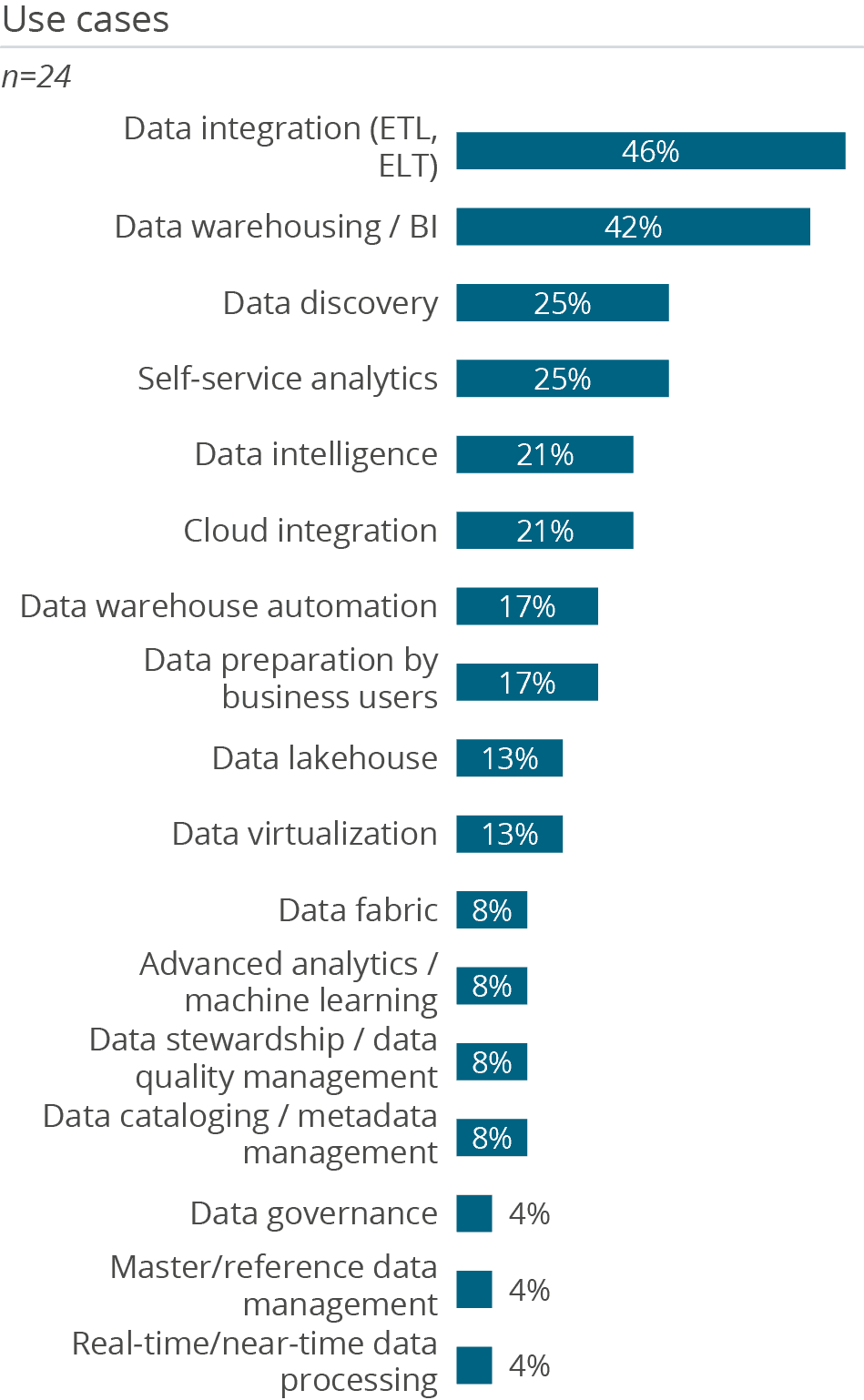

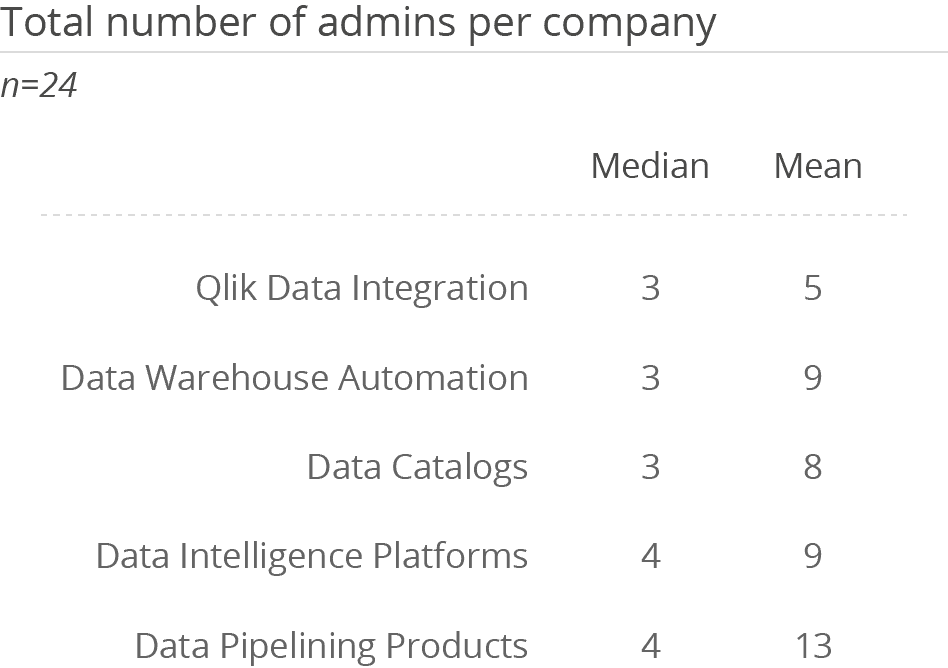
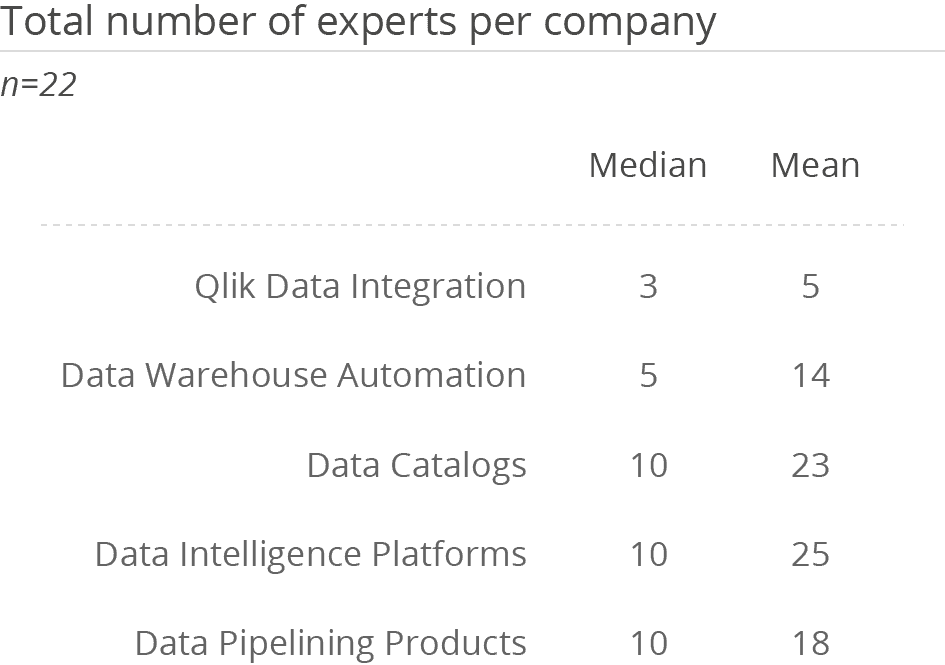
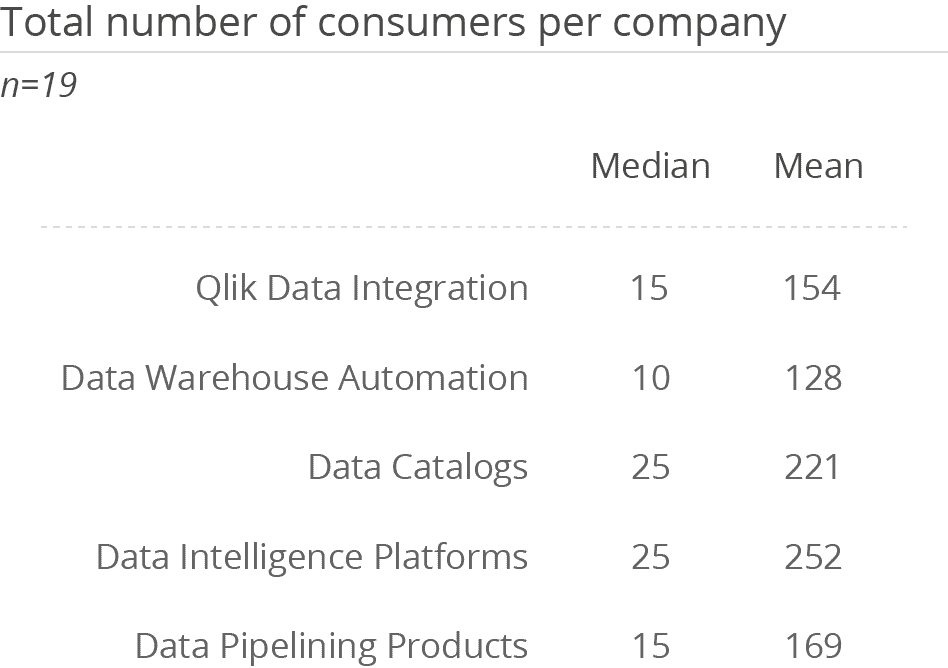
Want to see the whole picture?
BARC’s Vendor Performance Summary contains an overview of The Data Management Survey results based on feedback from Qlik Data Integration users, accompanied by expert analyst commentary.
Contact us to purchase the Vendor Performance Summary- Register for a free sample Vendor Performance Summary download
- If you have any questions, feel free to contact us
